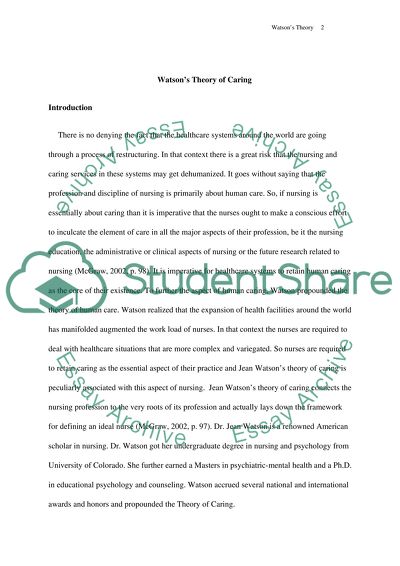Cite this document
(“Watson's Theory of Caring Term Paper Example | Topics and Well Written Essays - 1750 words”, n.d.)
Watson's Theory of Caring Term Paper Example | Topics and Well Written Essays - 1750 words. Retrieved from https://studentshare.org/nursing/1433233-watson-s-theory-of-caring-paper
Watson's Theory of Caring Term Paper Example | Topics and Well Written Essays - 1750 words. Retrieved from https://studentshare.org/nursing/1433233-watson-s-theory-of-caring-paper
(Watson'S Theory of Caring Term Paper Example | Topics and Well Written Essays - 1750 Words)
Watson'S Theory of Caring Term Paper Example | Topics and Well Written Essays - 1750 Words. https://studentshare.org/nursing/1433233-watson-s-theory-of-caring-paper.
Watson'S Theory of Caring Term Paper Example | Topics and Well Written Essays - 1750 Words. https://studentshare.org/nursing/1433233-watson-s-theory-of-caring-paper.
“Watson'S Theory of Caring Term Paper Example | Topics and Well Written Essays - 1750 Words”, n.d. https://studentshare.org/nursing/1433233-watson-s-theory-of-caring-paper.


